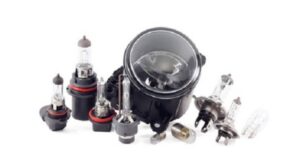Epoxy viscosity, or its resistance to flow, significantly impacts its application and the quality of the final product. Understanding the factors affecting viscosity and selecting the right epoxy for your specific needs is crucial for successful bonding.
The Importance of Epoxy Viscosity
Viscosity plays a critical role in several aspects of epoxy application:
- Dispensing: Low-viscosity epoxies are easier to dispense in thin lines or dots, while high-viscosity epoxies are better suited for gap filling.
- Wetting: Proper wetting of surfaces is essential for strong adhesion. Low-viscosity epoxies generally exhibit better wetting properties.
- Fillers and Reinforcements: The addition of fillers or reinforcements can significantly increase viscosity.
- Cure Depth: Viscosity affects the depth to which the epoxy can penetrate, influencing the final bond strength.
Factors Affecting Epoxy Viscosity
Several factors influence the viscosity of epoxy resins:
- Epoxy formulation: The type of resin and curing agent used determines the base viscosity.
- Temperature: Higher temperatures typically reduce epoxy viscosity.
- Mixing: Improper mixing can affect viscosity and homogeneity.
- Additives: Fillers, thickeners, or thinners can modify viscosity.
Choosing the Right Epoxy Viscosity
Selecting the appropriate epoxy viscosity is crucial for optimal results:
- Application method: Consider the dispensing method, whether it’s manual, automated, or spray application.
- Gap size: The distance between the bonding surfaces determines the required viscosity.
- Filler content: The amount of filler or reinforcement will influence the viscosity.
- Cure depth: Determine the desired depth of penetration for the epoxy.
Incure’s Viscosity Solutions
Incure offers a wide range of epoxy resins with varying viscosities to meet diverse application requirements. Our expertise in epoxy formulation allows us to tailor viscosity to specific needs, ensuring optimal performance.
Conclusion
Understanding and controlling epoxy viscosity is essential for achieving desired bonding results. By carefully considering the factors affecting viscosity and selecting the appropriate epoxy, manufacturers can improve product quality, reduce waste, and enhance overall production efficiency. Incure’s comprehensive range of epoxy resins and expert support provide solutions for any viscosity challenge.



